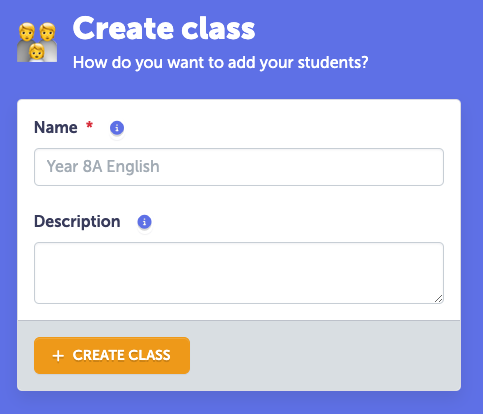To use the small group features, you need to create a class and your students need to create accounts.
Note: Student accounts use random codes (no email or passwords) and you can edit student names and codes at any time.
Instructions
Go to Class Admin > Classes > Create class.

Give the class a name and an optional description.

Tell your class to Register as students and join with the class code.
- If they already have a Frankenstories/Writelike account, they can simply log in with their student code and use the class code to join the new class.

Notes
- You can edit student names.
- You can display and regenerate student codes.
- You can create additional "classes" and add or invite your existing students to serve as differentiation groups.
- Tip: Tell your students to email themselves their student codes or save them as a note on their device desktop.

